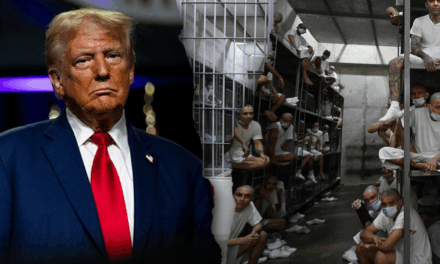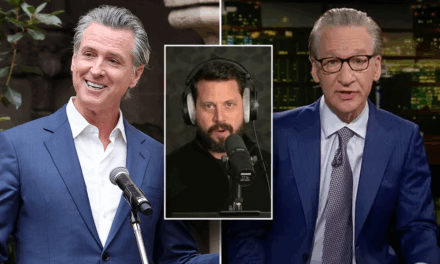In the ever-evolving landscape of American political media, disagreements are often the norm rather than the exception. However, an unlikely consensus has emerged between a politician and a media personality, both of whom generally represent different factions of the public sphere. Nikki Haley, a prominent political figure, and Charlamagne Tha God, a well-known radio and TV personality, recently reached a rare meeting of the minds. Their shared viewpoint revolves around the motivations behind MSNBC’s “Morning Joe” co-hosts’ recent visit to Mar-a-Lago to interview former President Donald Trump.
This unlikely agreement raises questions about the intersection of politics, media influence, and the ever-important quest for ratings. With a backdrop of intensifying debates and a continuously splintering political climate, the added element of media dynamics has introduced a complex layer of considerations.
Both Nikki Haley, the former U.S. ambassador to the United Nations and a prominent figure in the Republican Party, and Charlamagne Tha God, a cultural commentator with a significant platform, voiced similar suspicions regarding this unexpected meeting. They suggested that the visit was primarily driven by the need to bolster sagging viewership numbers. In an era where ratings often serve as the lifeline for television programs, speculation about strategic shifts to attract or retain audiences is ever-present.
“Morning Joe,” a long-running morning news and talk show, features its hosts Joe Scarborough and Mika Brzezinski, who have cultivated a distinct brand characterized by candid discussions and political insights. Over the years, their relationship with Trump has oscillated from amiability to contention. Given this history, their recent interview at Mar-a-Lago raised eyebrows and stirred conversations among media critics and viewers alike.
Haley and Charlamagne both posited that the imperative to regain a stronghold on ratings amidst dwindling viewership might have been a motivating factor for Scarborough and Brzezinski. The competitive nature of the news media landscape necessitates constant adaptability, prompting media entities to employ various strategies to secure their position and relevance in public discourse.
Haley articulated her perspective, suggesting that the visit marked a strategic pivot by the “Morning Joe” team. “They saw the ratings tank,” she opined, further suggesting that aligning their content with high-profile political figures, particularly those with polarizing presences such as Trump, presented a calculated opportunity to reinvigorate audience engagement. Her comments underscore a broader narrative prevalent in contemporary media discourse where ratings play a pivotal role in shaping content and programming choices.
Echoing similar sentiments, Charlamagne Tha God, known for his direct and often provocative commentary, expressed that media figures often reevaluate their approaches when faced with declining ratings. He highlighted the transactional nature of media engagement, where leveraging influential figures can reignite public interest and generate buzz. His perspective reflects an understanding of the symbiotic relationship between media platforms and their audiences, particularly in a saturated entertainment environment.
Beyond the specific context of this media exchange, the broader implications extend into the intricate nexus of politics, journalism, and entertainment. The convergence of these spheres often blurs traditional boundaries, creating a landscape where strategic considerations play a crucial role in content creation and dissemination.
In analyzing the criticisms and defenses surrounding the “Morning Joe” interview, it’s important to recognize the multifaceted dynamics at play. Media platforms, while positioned as neutral purveyors of news, operate within economic constraints that demand attention to viewership metrics. Simultaneously, the political figures involved, whether as guests or commentators, impact these dynamics, often swaying public perception through their chosen platforms.
For political figures such as Nikki Haley, understanding and critiquing media strategies can serve as a tool to engage with both supporters and critics. By offering a hypothesis on the motivations behind high-profile media decisions, Haley not only presents her analysis but also leverages her political stance as part of a broader narrative that critiques mainstream media biases.
Similarly, Charlamagne Tha God utilizes his platform to provoke discussion on the intersections of race, politics, and media, generating dialogue that resonates with diverse audiences. His observations on media strategies contribute to a larger discourse surrounding media integrity and the accountability of news outlets to their audiences.
The discourse surrounding the “Morning Joe” interview with Trump presents an illustrative case study of how media strategies intricately intertwine with political realities. As Pence signals the continued influence of Trump within the Republican Party, media figures and platforms assess their roles in framing the discussion and directing public focus.
This particular instance also reflects broader societal challenges, including the tensions between media freedom and commercial pressures. As audiences increasingly curate their news consumption based on perceived biases and alignments, the question of whether media entities can navigate these pressures without compromising their integrity continues to provoke critical analysis.
In conclusion, the conversation arising from Nikki Haley and Charlamagne Tha God’s agreement sheds light on the complex motivations driving content choices within news media. This dialogue serves as a microcosm of the ongoing negotiations between media platforms and the political landscape they portray, highlighting the delicate dance between influencing public opinion and fulfilling business imperatives.
While the specific implications for “Morning Joe” and its potential viewership revival remain to be fully realized, the broader conversation reflects the ongoing evolution of American media dynamics. As stakeholders in this landscape, political figures, media personalities, and audiences continue to contribute to the ever-shifting dialogue that defines the modern media age. The discourse not only shapes current events but also influences the trajectories of media platforms seeking to balance authenticity, ratings, and relevance amidst a rapidly changing cultural landscape.
































